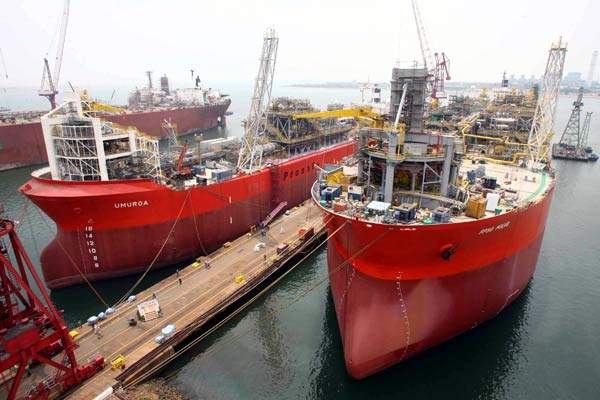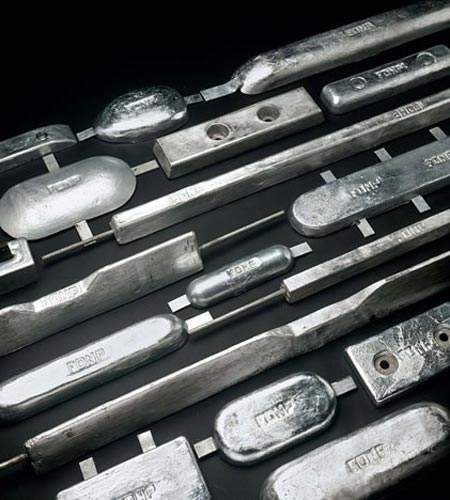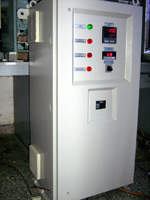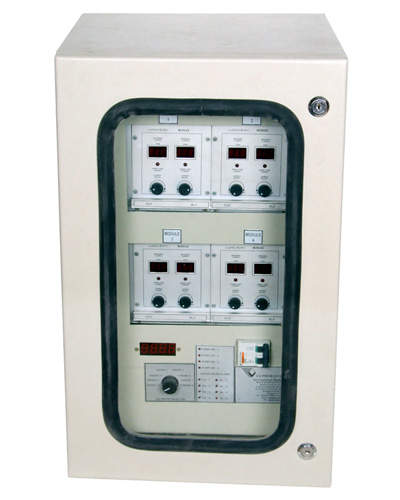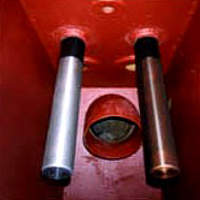Cuproban Systems is one of the UK’s oldest manufacturers of marine pipeline anti-fouling systems. In existence since 1985, we have several hundred installations worldwide in a variety of vessels including cruise and commercial vessels, ferries, rigs and platforms.
The company has now expanded to a full services provider of marine cathodic protection products. In addition to pipeline electrolytic anti-fouling and corrosion-control systems, we offer aluminium and zinc sacrificial anodes (in selected markets) and impressed-current cathodic protection systems. With a centralised international marketing head quarters in Singapore and agents and distributors in several countries, the company is well-positioned to cater to the global shipping customer.
Aluminium and zinc sacrificial anodes
The company offers a wide range of aluminium and zinc sacrificial anodes for ship-hull and ballast-tank protection and for protection of offshore platforms and pipelines, jetties, wharves and other marine structures. Aluminium and zinc sacrificial anodes are available from ready stocks in Europe, Singapore and China.
Impressed-current cathodic protection systems
Impressed-current cathodic protection systems work by taking the ship’s power, using a transformer rectifier unit to convert it into direct current and impressing this on to the hull through inert anodes strategically positioned on the hull. The current flows from the inert anodes through the seawater and back to the hull — the quantum of current being determined by suitably positioned reference electrodes that monitor the hull’s potential — and is such that the hull’s potential is always maintained at the protected level.
Cuproban Systems offers a range of impressed-current cathodic protection systems from 25A to 400A. The control panels are offered in a wide range, from simple linear systems to advanced systems using high-frequency power supplies, enabling individual-anode current control. Features such as automatic data-logging and remote display are also available in different models of control panels. The panels are rugged and typically meet IP54 requirements, offering maintenance-free and long-lasting protection.
Inert anodes are typically MMO-coated titanium anodes in the form of disk anodes and linear anodes, capable of handling currents from 25A to 175A. These anodes typically have lives of 15 to 25 years and come with epoxy-resin or neoprene-rubber holders. Reference electrodes can be of zinc or Ag/AgCl. The anodes and electrodes are supplied with rugged cofferdam assemblies. These are easy to install but also extremely safe, having undergone pressure testing.
Advantages of an impressed-current cathodic protection system as compared to a sacrificial anode CP system include:
- Careful design can compensate for significant coating damage and help extend dry-docking intervals
- No anode removals required during dry-docking, reducing maintenance costs
- Instrumentation on the control panels enables the protection levels to be continuously monitored
- Anodes are generally flush-mounted on the hull, or even if surface-mounted are very few in number, thereby reducing structural loading and hydrostatic and hydrodynamic resistance, and thus reducing the ship’s fuel consumption
Shaft-grounding systems for ship propellers
For complete protection of ships, it is imperative to electrically ground the ship’s propeller to the hull, for which Cuproban Systems provides shaft-grounding systems complete with slip rings, brushes, brush rigging and optional monitoring equipment.
Electrolytic anti-fouling and corrosion-control systems
Cuproban’s electrolytic anti-fouling systems consist of copper and aluminium (or soft iron) anodes strategically located in sea chests or sometimes in-board, but as close to the sea water intake point as possible. One such set of anodes is recommended for each seawater service. The anodes are connected to a control panel that feeds a current to the anodes. This causes the copper anodes to release cupric ions and the aluminium anodes to release aluminium ions that form an aluminium hydroxide, ‘floc’.
The resultant ions and floc produced by the anodes is carried by the seawater, spreads through the pipework and creates an environment that is distinctly unfriendly to marine life. Thus any marine life larvae that enter the pipeline will not settle but will pass right through to discharge. An added benefit is that the aluminium hydroxide floc creates a protective film on the pipelines, thereby significantly reducing pipeline corrosion.
The result is cleaner pipelines with long and trouble-free life, resulting in lower maintenance and running costs.
Anti-fouling and corrosion-control systems for small pipelines
For pipelines with space constraints, for instance on warships and submarines, we offer special dual-purpose anodes with both the anti-fouling and corrosion-control anodes fitted together in a space-saving package.
Spare anodes for anti-fouling systems
The company can also offer spare anodes of other leading anti-fouling systems, for emergency replacement work.


